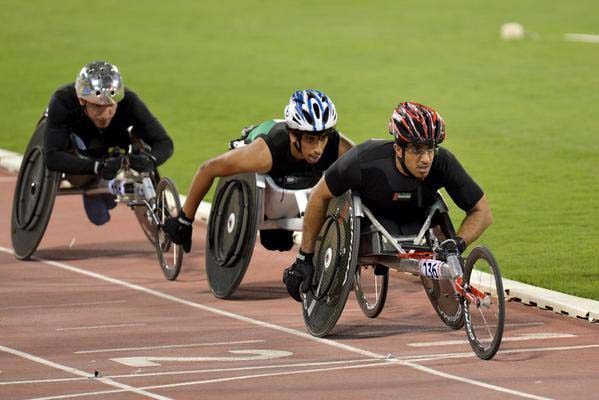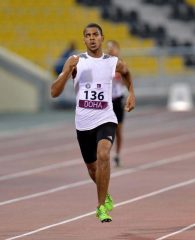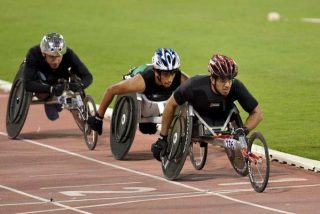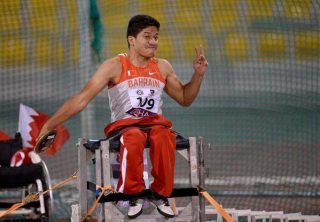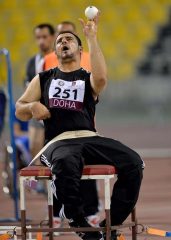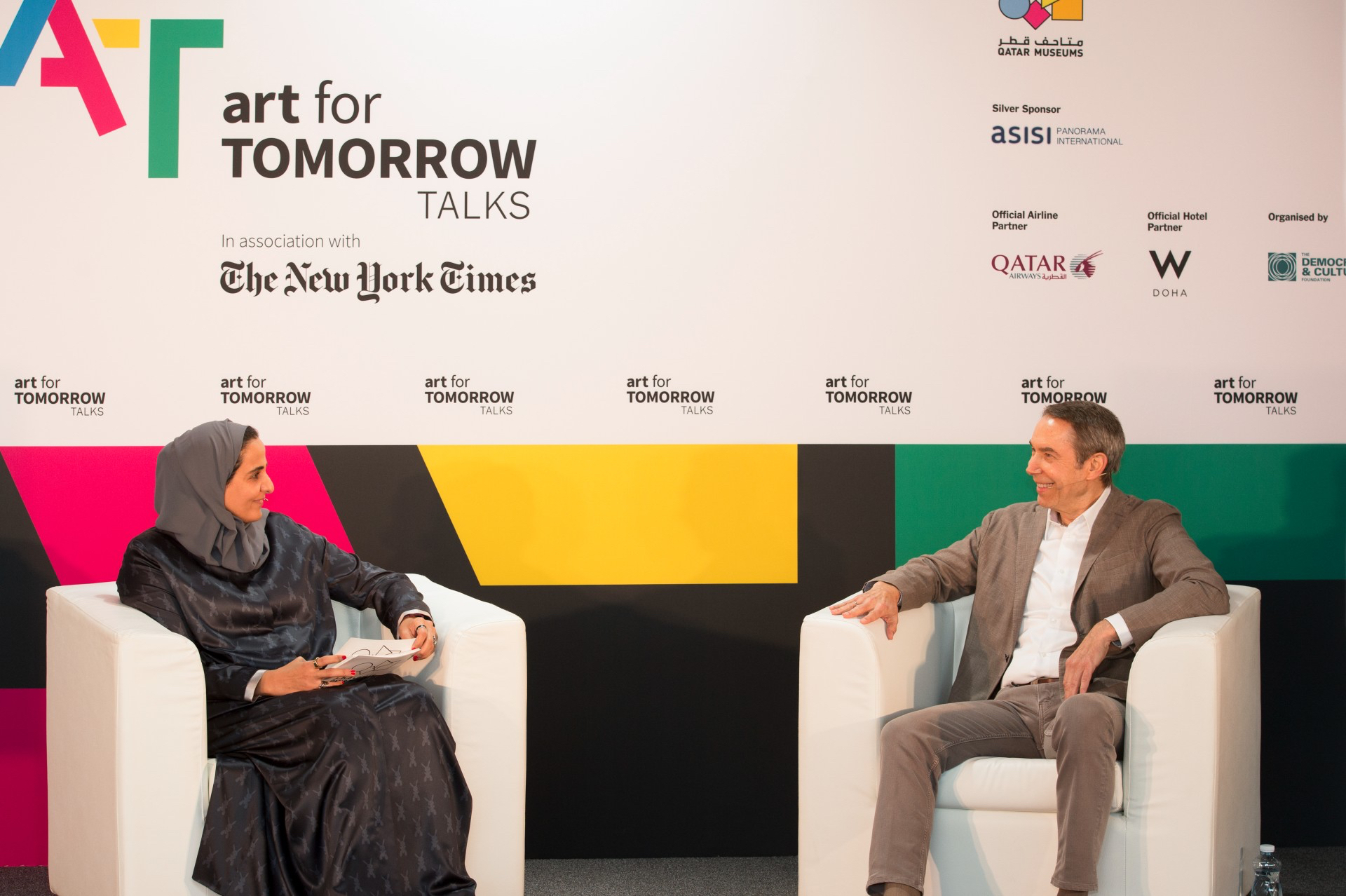All photos courtesy of Qatar Olympic Committee
More than 1,000 athletes with special needs will gather in Doha next month to take part in what will be the world’s biggest single para-sport event, organizers have said.
The International Paralympics Committee (IPC) Athletics World Championships will be held for the first time in the Middle East at Qatar Sports Club from Oct. 21-31, during which 1,400 sportsmen and women from 100 countries will compete for the top titles.
Under the slogan “Beyond Incredible,” the competition’s large roster of participants makes it larger in scope than the London 2012 Paralympics.
Among those in attendance will be paralympic champions, defending world champions and world-record holders, who will also compete to qualify for the 2016 Paralympic Games in Rio.
Qatar’s athletes
Qatar’s national team, which consists of nine athletes, have also qualified to take part in the World Championships.
While the final roster has not yet been released, those vying for top places include Abdelrahman Abdelqader, Mohamed Al Khubaisi and the only woman on the national para-sports team, Sara Hamdi Masoud.

Abdelqader, 27, is currently ranked second globally in shot put, and also will compete in javelin and discus throw.
After competing in London 2012 and taking gold for shot put and bronze for javelin in the 2014 Asian Para Games, he is hoping to put out a strong performance in front of a home crowd next month.
Meanwhile, discus and shot put athlete Masoud, 29, took the gold medal in both sports in the 2014 Asian Para Games. And in April this year, she came second in the IPC Athletics Grand Prix in Beijing.
Al Khubaisi, 22, competed in the 100m T34 event, winning gold for team Qatar in the race at the 2014 Asian Para Games. Much like his medal-winning teammates, he also won the gold medal in the wheelchair 100m and 200m events in Beijing during IPC Athletics Grand Prix fixture earlier this year.
The Qatari athletes will be among 200 other para-athletes from around the world taking part in an ongoing test event that runs until Sept. 15, and is also this year’s Gulf Corporation Council (GCC) Para-Athletics Championships.
“My season has been going very well so far and I will use the GCC Para-Athletics Championships to see what form I am in and what I need to work on ahead of the World Championships,” Abdelqadar said in a statement.
According to the IPC’s website, the events on the Paralympic program include:

Track events such as sprint (100m, 200m, 400m); middle distance (800m, 1,500m); long distance (5,000m, 10,000m) and relay races (4x100m, 4x400m). The field events are high jump, long jump, triple jump, discus, shot put, javelin, while marathon and pentathlon also feature.
Among those expected to compete are Great Britain’s 100m T44 Paralympic and world champion Jonnie Peacock and Germany’s world champion in the long jump T44 long jump Markus Rehm. Athletes with T44 classifications usually have paralysis in a limb or a missing limb.
Launching the ticket sales for the event (which can be booked here and the proceeds of which go to charity), CEO of the Organizing Committee and President of the Qatar Paralympic Association, Ameer Al-Mulla, said:
“We are expecting an electric atmosphere in the stadium and multiple world-records are likely to be set. Nothing will compare to being able to witness the incredible action live.”
Sharing stories
Raising awareness of the challenges faced and overcome by the athletes, organizers are releasing a series of short-films entitled My Incredible Story, where five sportsmen and women share their experiences.
Brazilian paralympian Terezinha Guilhermina features in the first video, where she talks about being born with a degenerative eye condition, and growing up in poverty in a family of 12 that had little money for food.
Now a world champion in the 100m, 200m and 400m events, she became the world’s fastest blind athlete at the 2012 Paralympics.
Guilhermina first discovered her talent for running when escaping from school bullies. She says in the film:
“During my childhood, our financial situation had a very deep impact on my life, on the way I looked at the world. I believe those who have little in life can sometimes achieve a lot more. I used to dream of being the best in the world, so I could change my story. Sport has had an amazing impact on my life. I went from being Terezina Guilhermina, the one who dreamed, to Terezina Guilhermina, the one who achieved her dreams.”
Four other films will be released ahead of the opening day of the tournament.
Dr Thani Abdulrahman Al Kuwari, President of the Local Organising Committee and Secretary General of the Qatar Olympic Committee said:
“The motto of the Doha 2015 IPC Athletics World Championships is ‘Beyond Incredible’. We want to use the World Championships to show the incredible stories behind some of the athletes that are competing in order to raise awareness of para-sport and people with a disability. We want to help break down barriers and change perceptions.”
Do you plan to go? Thoughts?

